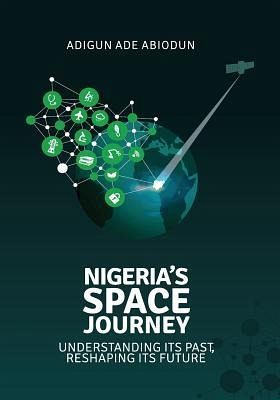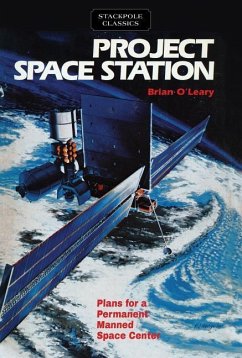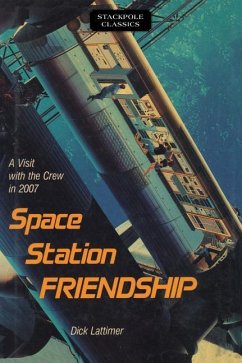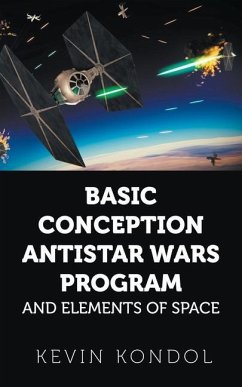
Nigeria's Space Journey: Understanding its Past, Reshaping its Future
Versandkostenfrei!
Nicht lieferbar
ABOUT THE BOOK "Nigeria's Space Journey - Understanding its Past, Reshaping its Future" is about space and its impact on a developing country, with Nigeria as a case study. The book focuses on the steps Nigeria is taking to achieve its space and related goals; it is divided into six main sections: Space in Human Lives; Space Efforts in Nigeria; Reawakening of Nigeria; Nigeria's Space Priorities; Contributions to the Resolution of Global Concerns; and Moving Ahead. When, in 1962, a 40-pound meteorite from Mars - named Zagami - landed in Nigeria, it was a significant space encounter for the nati...
ABOUT THE BOOK "Nigeria's Space Journey - Understanding its Past, Reshaping its Future" is about space and its impact on a developing country, with Nigeria as a case study. The book focuses on the steps Nigeria is taking to achieve its space and related goals; it is divided into six main sections: Space in Human Lives; Space Efforts in Nigeria; Reawakening of Nigeria; Nigeria's Space Priorities; Contributions to the Resolution of Global Concerns; and Moving Ahead. When, in 1962, a 40-pound meteorite from Mars - named Zagami - landed in Nigeria, it was a significant space encounter for the nation. Soon after, in 1963, was the equally historic first ever live satellite telephone conversation between America's then youngest President and Nigeria's first Prime Minister. Was space beckoning? Nigeria eventually took the plunge in 2001 and defined its space objective in these words: "To make Nigeria build indigenous competence in developing, designing and building appropriate hardware and software in space technology as an essential tool for its socio-economic development and enhancement of the quality of life of its people." However, instead of pursuing the above objective, Nigeria swallowed the bait of the satellite merchants that touted the acquisition of micro-satellites as the quickest and cheapest way to space for the developing countries. With a focus on the upstream-end of the technology, a string of such acquisitions soon became the centrepiece of the nation's space programme, acquisitions which have taken the nation off course and away from attaining the goals articulated in the above national space objective. The book examines and analyses the lessons Nigeria has learned on such a space journey, to-date. It concludes that the nation's space efforts have not delivered as promised and that the nation's space journey should be redefined and redesigned for Nigeria to attain its space and related goals. As Nigeria looks to the future, it must effectively utilise its natural endowments to earn its badge of honour as a space capable country, with an initial focus on the downstream impact of the technology. Thus, it would need to retool its own science and technology (S&T) capabilities and utilise these assets to enhance its economic development and improve the wellbeing of its people. The book draws on a number of examples from other nations and addresses how Nigeria could learn and benefit from their experience. Nigeria's steadfast commitment to the adoption and implementation of the proposed priorities in this book will enable it to secure its passport to its own future as a knowledge society and a developed country. It will also empower the nation to shape its own space and economic future, become a leading partner and voice in determining Africa's future, and be a reliable collaborator in the solution of global problems. By conscientiously following these approaches, Nigeria should be able to proclaim, in the near future, that "Space is our operational tool of development."







